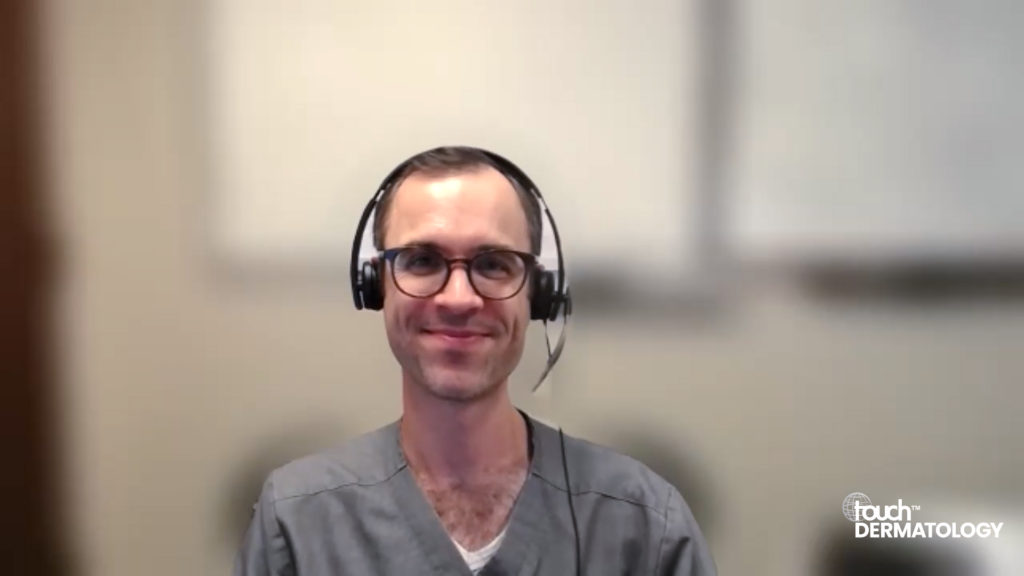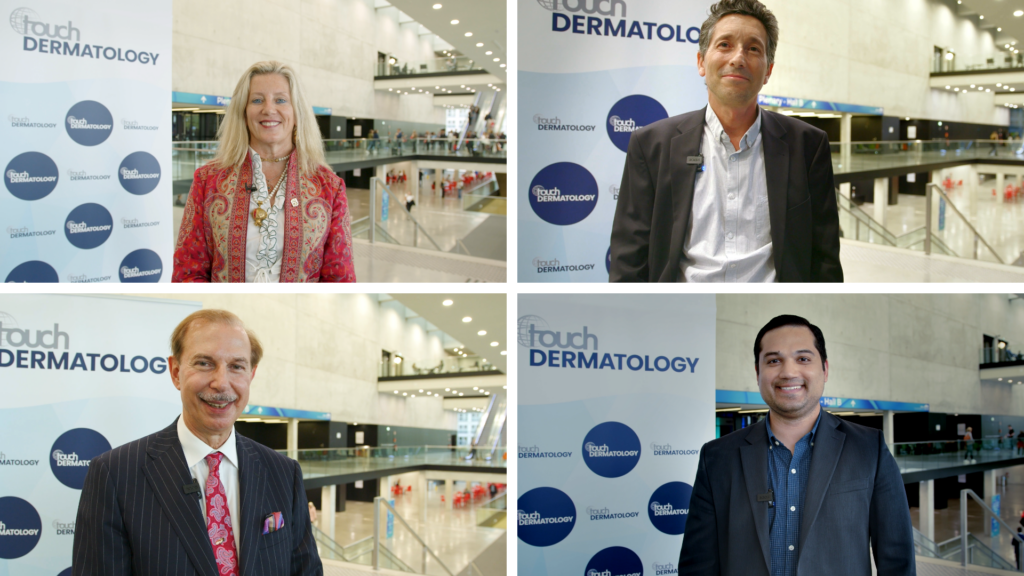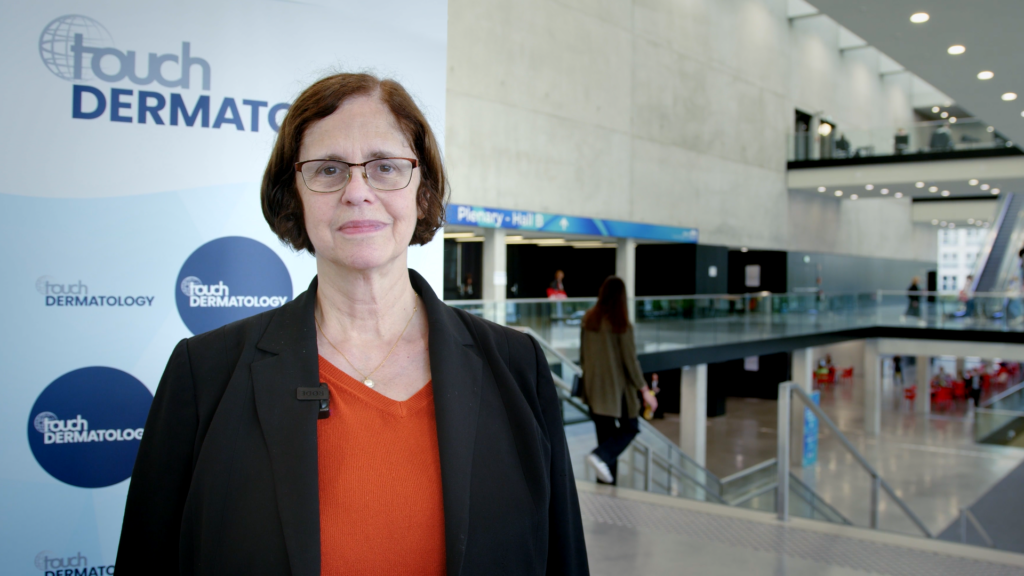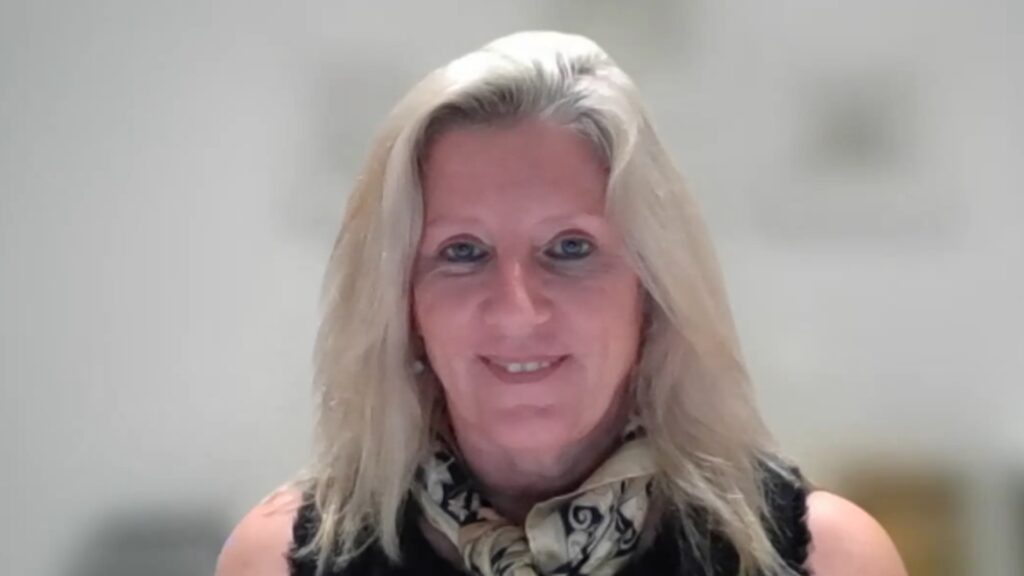Touch Medical Media coverage of data presented at EADV 2023:
Current treatment options for autoimmune blistering diseases (AIBDs) remain limited, with effective treatments associated with adverse events or issues with long-term use. Insights into the pathogenesis of AIBDs are providing promise for potential therapeutic targets.
In this interview touchDERMATOLOGY spoke with Expert Faculty member Prof. Dedee F. Murrell (UNSW Medical School, Sydney, Australia) around the challenges in the current treatment landscape for AIBDs, advances in therapeutics in recent years, and the importance of understanding the pathogenesis of AIBDs in guiding future therapeutic targets.
Questions
- Could you describe the current treatment landscape for autoimmune blistering diseases (AIBDs) and the unmet needs that exist? (0:37)
- What issues are associated with high level immunosuppression when treating AIBDs? (2:31)
- What have been the most important recent advances in treatments for AIBDs? (3:39)
- How will advances in the understanding of AIBD pathogenesis guide future therapeutic targets? (6:04)
- How important will translational medicine be for improving outcomes in patients with AIBDs? (8:19)
Disclosures: Dedee Murrell discloses serving on advisory boards for Argenx, Sanofi, Principia, Janssen, Lilly, Almirall, Roche, Cocreator PDAI, BPDAI, MMPDAI, Abbvie, Novartis, Kineska, Amryt, Castle Creek, Rheacell, and Shire.
Support: Interview and filming supported by Touch Medical Media Ltd. Interview conducted by Victoria Jones and Katey Gabrysch.
Filmed in coverage of the EADV Annual Meeting.
This content was developed by Touch Medical Media and is not affiliated with the European Academy of Dermatology & Venereology (EADV) or the congress.
Click here for more content on autoimmune diseases & for further EADV 2023 highlights visit here.









